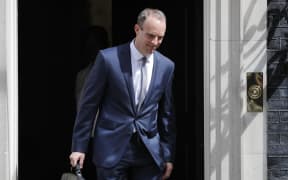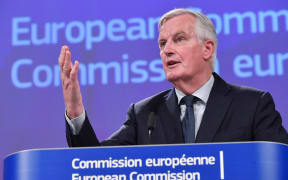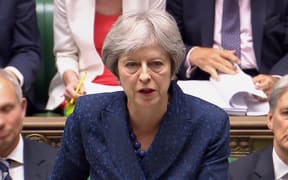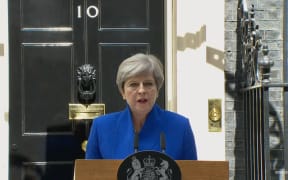UK Prime Minister Theresa May's draft divorce deal with the European Union is in jeopardy after her Brexit secretary and other ministers quit in protest and her own eurosceptic lawmakers called for her to be ousted.
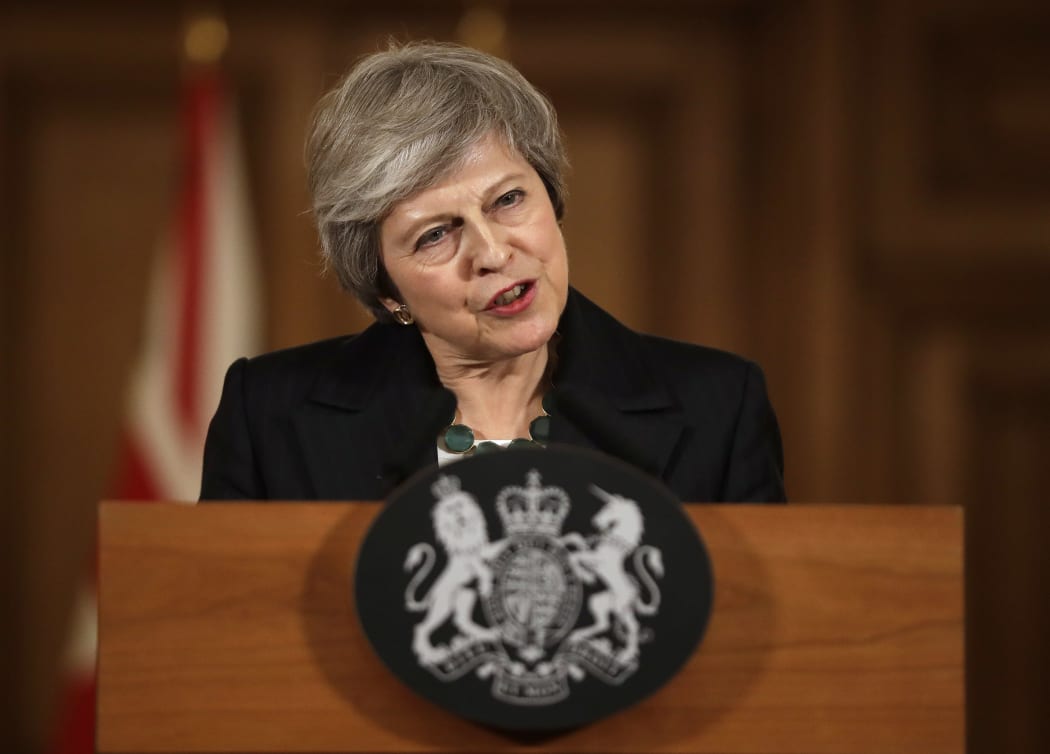
Britain's Prime Minister Theresa May speaks during a press conference inside 10 Downing Street in central London on November 15, 2018. Photo: AFP
Just over 12 hours after May announced that her cabinet had agreed to the terms of the deal, Brexit minister Dominic Raab and work and pensions minister Esther McVey resigned.
Eurosceptics in May's Conservative Party said they had submitted letters calling for a vote of no confidence in her leadership.
Two junior ministers, two ministerial aides and the Conservatives' vice chairman also quit. Hostility to the deal from government and opposition lawmakers raised the risk that the deal would be rejected and Britain would leave the EU on 29 March without a safety net.
By seeking to preserve the closest possible ties with the EU, May has upset her party's many advocates of a clean break, and Northern Ireland's Democratic Unionist Party (DUP), which props up her minority government.
Meanwhile, proponents of closer relations with the EU in her own party and the Labour opposition say the deal squanders the advantages of membership for little gain.
Both sides say it effectively cedes power to the EU without securing the promised benefits of greater autonomy.
"It is...mathematically impossible to get this deal through the House of Commons. The stark reality is that it was dead on arrival," said Conservative Brexit-supporting lawmaker Mark Francois.
May, who has scheduled a news conference, will need the backing of about 320 lawmakers in the 650-seat parliament to pass the deal.
The ultimate outcome remains uncertain. Scenarios include May's deal ultimately winning approval; May losing her job; Britain leaving the bloc with no agreement; or even another referendum.
Worse than anticipated
Analysts from US bank Citi said Britain was now likely either to stay in the EU or leave without a deal.
Jacob Rees-Mogg, the leader of a Conservative eurosceptic group in parliament, said he had formally requested a vote of no confidence in May, and that the draft was "worse than anticipated".
At least 14 Conservative lawmakers openly said they had submitted such letters, although others could have done so secretly. Forty-eight letters are needed to trigger a challenge.
But the prime minister told parliament: "The choice is clear. We can choose to leave with no deal, we can risk no Brexit at all, or we can choose to unite and support the best deal that can be negotiated."
Her spokesman said May intended to be prime minister when Britain leaves the bloc next year.
And a key ally, former interior minister Amber Rudd, told Sky News: "The problem isn't the prime minister. The problem is the challenges she's got to deliver in trying to pull together this Brexit. She's the best person to do it."
Boris Johnson, a leading critic of May's Brexit plans who has done little to hide his political ambition, attended a meeting of the European Research Group, where Rees-Mogg and members discussed how many no-confidence letters had gone in.
Rees-Mogg told journalists the next prime minister should be a person who believed in Brexit.
In the markets, the pound sank as far as 1.8 percent to $1.2751, its second biggest drop this year, while the main share index was down almost 0.5 percent. Ireland's main stock index plunged 3.8 percent.
British financial regulators called major banks asking for feedback on market conditions because of the sharp falls, sources said.
In parliament, lawmakers from all sides spent three hours mostly attacking the draft, agreed with the EU on Tuesday.
No ability to exit
"No democratic nation has ever signed up to be bound by such an extensive regime, imposed externally without any democratic control over the laws to be applied, nor the ability to decide to exit the arrangement," Raab said in his resignation letter.
Others said the so-called "Irish backstop", to be used if no better way can be found to avoid future checks on the border between the British province of Northern Ireland and EU-member Ireland, would tear Britain apart, leaving Northern Ireland all but inside the EU's single market.
It was this arrangement, which sees Britain and the EU establishing a single customs territory, that spurred most of the criticism.
The Labour Party said the government was "falling apart".
EU leaders are ready to meet on 25 November to sign off on the divorce deal, or Withdrawal Agreement, but French Prime Minister Edouard Philippe summed up the uncertainty when he said events in London raised concerns about whether it would be ratified.
"We need to prepare ourselves for a no-deal Brexit," he said.
A group of EU states also raised objections to what has been agreed so far on fishing between the EU and UK after Brexit, diplomatic sources said.
Raab, 44, was named Brexit secretary in July after the resignation of his predecessor David Davis, who also quit in protest at May's strategy.
At the heart of Raab's criticism was the belief that the pursuit of a customs union with the EU would be the starting point for talks on the future relationship with the bloc, "severely prejudicing" what Britain could achieve.
He said he could not support an indefinite backstop arrangement, and that May's plan threatened the integrity of the United Kingdom.
The DUP has threatened to pull its support from the minority government if the backstop means the province is treated differently from mainland Britain.
- Reuters
